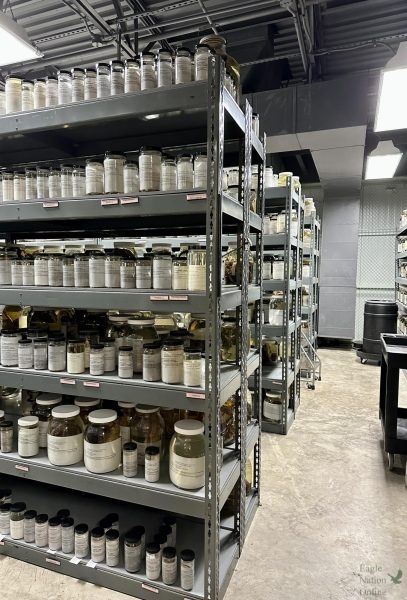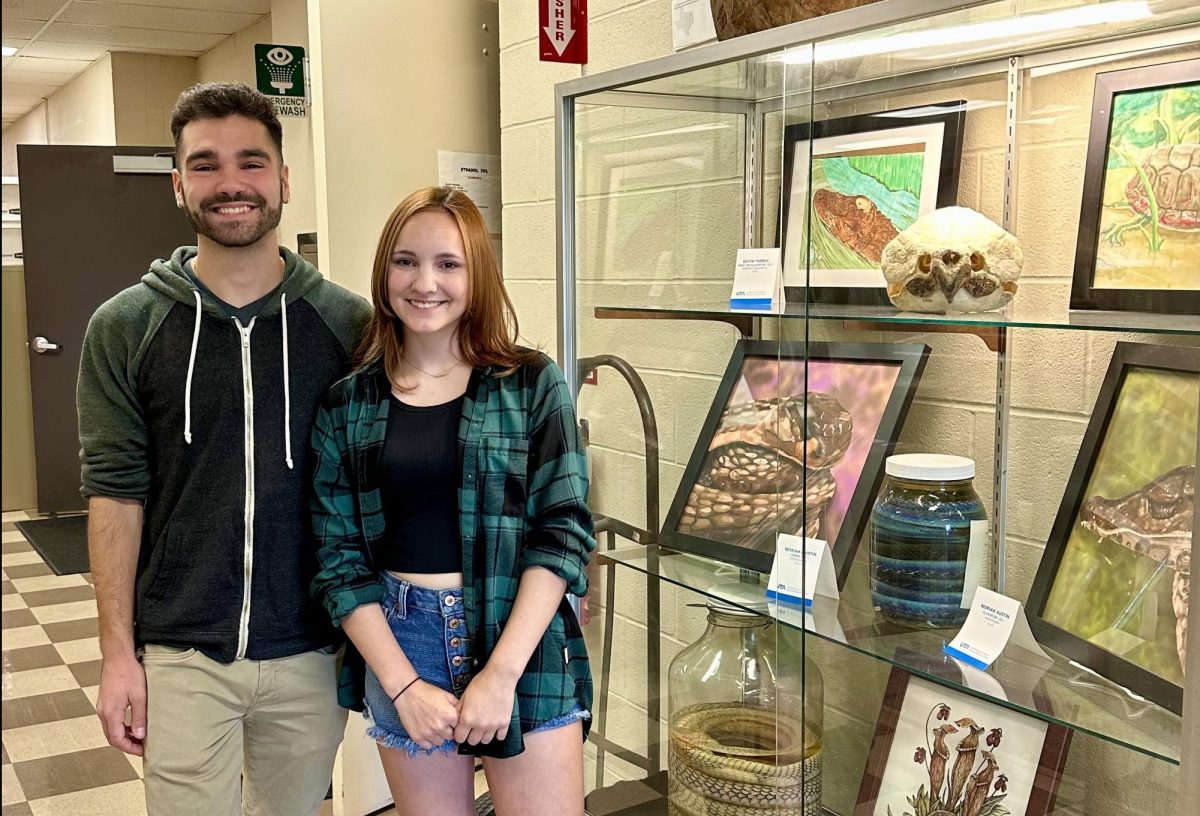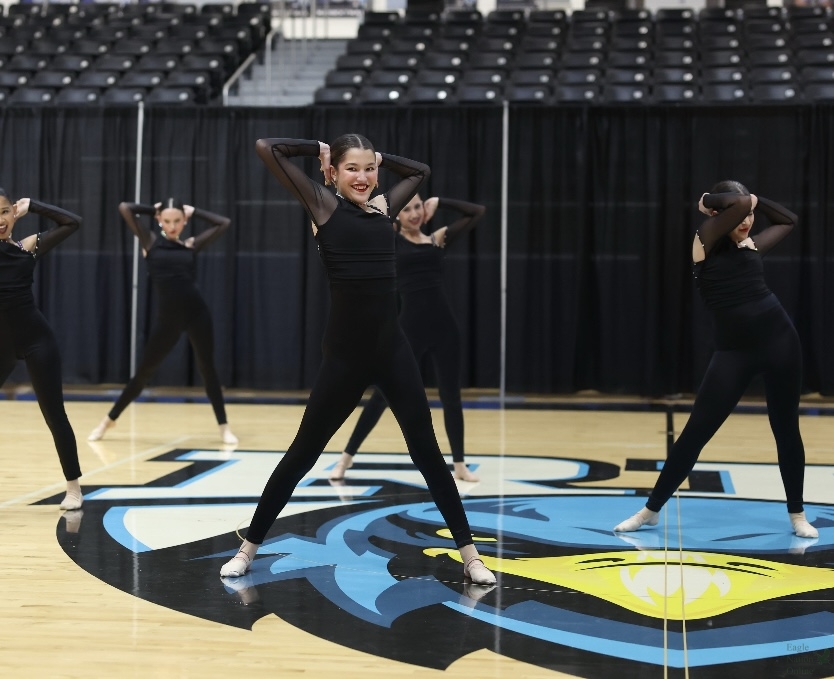Tucked away at the edge of the University of Texas at Arlington’s campus, the Amphibian and Reptile Diversity Research Center stands as the largest herpetological collection in Texas, and one of the greatest in the country. Herpetology is the study of amphibians and reptiles.
The ARDRC research facility houses more than 200,000 preserved specimens, along with file cabinets full of decades-old scientific journals and shelves of diverse skeletal remains. Scientists from across the world depend on this center for their studies, and faculty regularly ship tissue samples international to aid the worldwide scientific community. Students at UTA who are studying herpetology or a related major are offered many opportunities to conduct their own research at the facility. For students looking into a major in biology, zoology, or herpetology, UTA is a hidden gem. It’s a perfect fit for those who are looking for a diverse community and hold a passion for scientific research.
“As the largest center for reptile and amphibian research in the state and top 10 in the country, the ARDRC provides opportunities for UTA and external students interested in herpetology to get involved with reptile and amphibian research at various levels,” collections manager at the ARDRC, Greg Pandelis, said. “We provide volunteer opportunities to anyone interested from the broader community as well as research credit to students in the biology program at UTA.”
UTA is widely appealing to its students due to its classification as a Carnegie R1 Institution as well as its Texas Tier One 1 status. These distinctions mean that the college itself has high research activity and spends millions of dollars on research programs, and doctorate programs. One program as such for students interested in the ARDRC, herpetology, or fieldwork is the Frishkoff Lab. The Frishkoff Lab is a paid research opportunity for undergraduates provided by Luke O. Frishkoff, an assistant professor at UTA for the Department of Biology.

“For two months you go to a country, they’ve been to Jamaica, Cuba, the Dominican Republic,” sophomore at UTA and biology major Morgan Conklin said. “They research the anoles there and why they get the phylogeny and ecological niche they do. There is a spring course called Field Research and Ecology Skills that’s run by Dan who decides who gets into the program. It’s basically catching lizards around campus with a little lasso — it’s really cool.”
Staff offer several travel opportunities to aspiring biologists or ecologists at UTA, as well as on-campus research and field opportunities. The ARDRC itself allows students to volunteer at the facility for advanced biology credit.
“If you’re interested in counting scales, cataloging uncataloged specimens, dissection, organizing the book collection, making labels for specimens, if you’re interested in literally anything,” Conklin said, “there’s a place for you in the ARDRC.”
Although UTA doesn’t have a separate herpetology program, students interested in herpetology can find their niche within the biology program. There are staff members associated with the ARDRC who add a herpetological edge to their own classes.
“The fact that we also have about a third of the Biology department at UTA affiliated with the ARDRC means that we have a ton of active research and fieldwork constantly going on here,” Pandelis said. “This makes UTA an awesome place to get hands-on experience and an education in herpetology.”
Biology staff at UTA and the ARDRC have connections to places such as the Dallas Zoo, Fort Worth Zoo, and programs for Texas Horned Lizard research and breeding.
The ARDRC gives hundreds of opportunities to students, but more importantly, according the the facility managers, it makes a significant impact on the environment and wildlife housed on planet Earth.
“From collection events from multiple people, we can create an incredible repository, that will advance our knowledge of the world around us,” associate professor for the Department of Biology and faculty member of the ARDRC Dr. Eric Smith said. “Simple observations by everyone make our collective knowledge of the world.”
The ARDRC is open to all students, scientists, and environmentalists who seek further knowledge of these unique animals.
“What I will say to you is that if you have that instinctive fear in you when it comes to this field, that’s normal,” Conklin said. “And if you want to pursue this field, despite that fear, go for it. There have been times I am terrified, and I’m like ‘Oh my God, what am I doing here? This is such a bad idea I need to run away, go hide.’ But the fear of not doing something I love so much is even worse. I’ve found that to not pursue it – is a tragedy.”


















